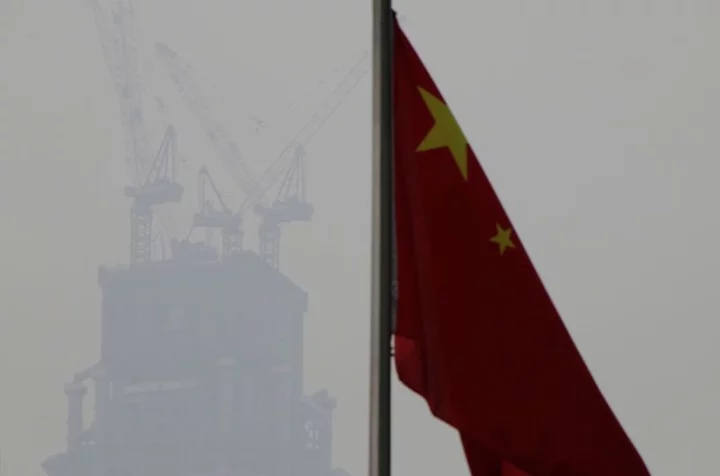By Li Gu and Summer Zhen
SHANGHAI/HONG KONG Investors betting on recovery in China's battered property sector are favouring the stocks and bonds of state-backed firms that are more likely to benefit from government support, market participants said.
The hugely leveraged sector has been gutted by three years of measures aimed at curbing speculative price rises and reducing developer debt, and has seen a string of major names defaulting on bonds or otherwise in dire financial straits.
Last month, however, the Politburo signalled change to real estate policy, and the People's Bank of China pledged reasonable financing for developers and lower mortgage rates. Some cities, such as Zhengzhou, have started easing property market curbs.
For wary investors keen to return to a sector that accounts for a quarter of the economy, state-owned developers may offer government endorsement and better access to cheap funding.
Such sentiment is reflected in markets. Hong Kong's price index of mainland developers - composed mainly of private firms - has fallen almost 30% this year. China's more mixed domestic real estate benchmark is down 13%.
State-owned developers including Yuexiu Property and China Resources Land are trading at a price-to-earnings ratio of eight, whereas some private developers such as Country Garden Holdings are trading at less than two.
The bonds of some private developers such as Country Garden and CIFI Holdings are rated below investment grade.
"Developers that are either state-owned, or investment-grade rated, or those that are owned by or associated with local financial institutions will be the ones that are able to borrow long-term, cheap financing," said Jenny Zeng, chief investment officer for Asia fixed income at Allianz Global Investors.
Meanwhile investors have taken a dim view of the private sector. Short interest in Asian real estate - mostly private Chinese property firms - has been rising since April, with shares loaned as a proportion of market capitalisation hitting 0.75% in July, showed data from S&P Global Market Intelligence.
Country Garden topped the list of most-heavily borrowed stock for short-selling, the data showed.
Wai Mei Leong, fixed income lead portfolio manager at Eastspring Investments, said her fund only buys into very high-quality property firms which are either government-owned or have a government policy objective.
Lower debt and better financing have helped state-owned enterprises (SOEs) gain market share. They have historically generated around one-third of property sales but that share has risen in recent years to about 59%, Capital Economics estimates.
The top five developers by sales in the first half year were state-backed, showed data from China Real Estate Information Corp. Long-time leader Country Garden was sixth.
The share prices of state-backed firms such as Poly Developments have outperformed the CSI 300 real estate index. Country Garden stock has slumped more than 80% since mid-2021.
Guangzhou local government-backed Yuexiu has seen its five-year bond due January 2026 bounce back to about 92 cents on the dollar from a trough of 60 cents in November. The offshore five-year bond of private firm CIFI, due October 2025, is around 8 cents.
"The latest property sales data for some of the performing non-SOE developers triggered fear that they would also need to default which sent shock waves through the market," said Philip Meier, head of emerging market debt and multi-asset portfolio manager at Gramercy.
(Reporting by Georgina Lee and Summer Zhen in Hong Kong and Li Gu in Shanghai; Editing by Vidya Ranganathan and Christopher Cushing)

